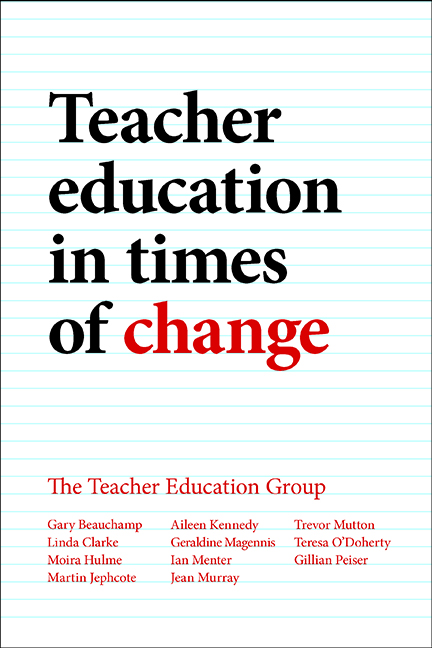Book contents
one - Introduction
Published online by Cambridge University Press: 23 August 2022
Summary
Why is teacher education policy significant – politically, sociologically and educationally? While the significance of practice in teacher education has long been recognised, influencing as it does the practice of teachers in schools and colleges and thereby having a strong effect on the quality of educational experiences for learners, the significance of policy in teacher education has only been fully appreciated in the more recent past.
It is our contention, in writing this book, that an analysis of teacher education policy in any state system is deeply revealing of the currently dominant values within that society. Through defining how and where teachers should be prepared for their work and sometimes through prescribing exactly what it is they should know and be able to do, we see how those in power in society are seeking to shape the world for future citizens. However, these values and commitments are not necessarily simply enacted within society. There may well be considerable resistances, adaptations and ‘accommodations’ that are made as policy processes are played out. Indeed, our further line of argument is that these contestations themselves are highly significant sociologically and are frequently indicative of deep underlying conflicts within society. It is for reasons such as this that the study of teacher education policy is of enormous interest, not only to educationalists but also to sociologists and political scientists.
Teacher education became a particular focus for political intervention in the United Kingdom (UK), the Republic of Ireland (RoI) and across the developed world during the 1980s, which was a time of enormous political and cultural change. Under the influence of neoliberal governments, cultures of accountability and control developed rapidly, leading to the emergence of teacher education systems dominated by standards frameworks, which set out explicitly what it was that teachers should be able to do and setting conditions for the provision of teacher education. There was also heightened contestation about the location of teacher education. What were the respective contributions of colleges, universities, schools, local authorities and central government, for example? And what were the governance arrangements, including the responsibilities of local and central government, teaching councils and other bodies?
- Type
- Chapter
- Information
- Teacher Education in Times of ChangeResponding to challenges across the UK and Ireland, pp. 3 - 18Publisher: Bristol University PressPrint publication year: 2015

